The seed you plant today will provide comfort, nourishment, and shelter for future generations.
GIFT OPTIONS
1. Appreciated Stock – equities that can be bought and sold on markets and transferred to charities, often avoiding capital gains
Example: A donor purchases a stock for $50.00 and holds it for more than one year. The stock is trading at $70.00, and the donor transfers the asset to the charity through a broker. The charity sells the stock, and the donor receives the deduction for the full value of the donation without paying capital gains on the $20.00 per share appreciation.
2. Beneficiary – the recipient of an asset or income that a donor intends to give away as part of an estate plan…naming a beneficiary is one of the most popular and simplest ways to help a charity. This includes retirement accounts, investment accounts, and life insurance policies.
Example: A donor has a new retirement plan starting at a new job. When filling out the paperwork as part of the orientation process, the new employee is asked by the retirement plan provider to name a beneficiary. The donor wants to leave money to a charity and prefers not to adjust a recently completed will. The donor mentions the charity to the retirement plan administrator and specifies the percentage/amount of the retirement plan that the charity will receive on the beneficiary form. The donor gives the charity a copy of the relevant portion of the beneficiary form after completing the paperwork through the employer.
3. Bequest – a revocable commitment structured in a will to legally specify a dollar amount or percentage of an asset to be given to a designated charity
Example: A donor works with a lawyer to create a will which includes language to give the Church the sum of $100,000 before (or after) having fulfilled the commitments made to the family stated in the will. The donor informs the Church of the relevant portion of the will by contacting the office of Stewardship and Development.
4. Charitable Gift Annuity (CGA) – A simplified agreement with a charity that pays a fixed percentage of income during the donor’s lifetime (or spouse’s lifetime) with the charity spending the proceeds once the donor(s) is deceased. Payments to the donor can be received immediately or they can be deferred to a later date as part of a CGA agreement.
Example: A donor who is 78 has retired is wondering how to ensure steady income without fear of outliving his means. He also has a number of charitable interests in organizations he has supported for years. The donor agrees to transfer $100,000 to one charity in return for annual payments of $6,500 (based on actuarial tables and interest rates August 2022) for his lifetime. The donor receives an immediate tax deduction of $51,458. The charity will receive the remainder of the annuity at the end of the lifetime of the donor, while annual income is guaranteed to be received for the lifetime of the donor.
Click here for more information and a gift calculator
5. Charitable Lead Trust (CLT) – a unique trust arrangement where the donor/family retains ownership of the asset, and guarantees to donate income from the asset for a number of years
Example: A donor wishes to contribute $25,000 annually to a charity and has investments of $500,000 in an account to be inherited by family members. The donor specifies in an agreement that $25,000 will be donated every year of the donor’s lifetime. The arrangement offers current and future tax benefits to the donor while confirming the asset will be inherited one day by the family.
6. Charitable Remainder Trust (CRT) – a structured arrangement that benefits a donor with annual income during the donor’s lifetime, similar to the charitable gift annuity. The Trust provides more features and options than the CGA, and is sometimes is managed by a third-party if more than one charity receives benefits. The proceeds of the trust are given away at the end of the donor’s lifetime.
Example: A donor wishes to spend 5% income from a $500,000 investment portfolio, and likes the peace of mind knowing annual income is guaranteed as long as the donor lives. The donor also wants a charity to benefit from it at the end of his lifetime. A remainder trust guarantees income ($25,000 the first year), provides a tax deduction based on the present value of the investment, and will not be included in estate tax calculations because it is being given away.
7. Donor Advised Fund (DAV) – A dedicated account on which you can request checks to be sent directly to charity instead of writing your own checks with after-tax income. The Diocese encourages DAV established through its own Catholic Foundation of the Diocese of Nashville.
Example: A donor has appreciated assets which she does not want to give right away. She can put the assets into a DAV managed by the Catholic Foundation or a financial services firm, take an immediate tax deduction, and avoid capital gains. Once the asset is transferred, she can request donation checks in the future with the DAV handling the administration.
8. Life Insurance – designating a charity as the beneficiary of the proceeds of a policy to be received at the end of your lifetime. Often, donors can transfer ownership to a charity and receive immediate tax benefits.
Example: You own a whole life insurance policy of $100,000 that is paid up and does not require premium payments to maintain its cash value. You want to give one or more charities $100,000 through your estate. You contact the life insurance company and assign one or more charities as beneficiaries, and a check will be sent to the charities at the end of your lifetime. The donor gives each charity a copy of the life insurance agreement.
9. Ownership in privately held companies – complex ownership of companies can be divided into shares, and with the help of a third party, can be assigned a value and donated to charities. A company could be sold, or shares could be bought back by the company.
Example: A family owns a business and a commercial building, and the business is being sold.
With a third-party trained in charitable giving involving privately held companies, an agreement can be created where the charity becomes one of the recipients of the proceeds of the sale. A tax-deduction becomes available to the individual who is donating the property, potentially off-setting some of the taxes associated with the windfall from the sale.
10. Other assets: If you are unsure whether an asset you own can be donated, you may be surprised to know that there are companies who specialize in assets that do not have many buyers or a traditional market. This allows donors to make gifts that they otherwise thought they could not make. For more information, please contact the Office of Stewardship and Development.
Example: A donor has a valuable crop that could be sold, and does not want to have taxable income selling the crop. For a commission, a known charitable broker can arrange to sell the crop and give the charity the proceeds. As part of the sale, the donor transfers ownership, receives a tax deduction, and does not have taxable income on the sale of the crop.
11. Real estate – an agreement to donate tangible property to a charity during (or after) one’s lifetime
Example: A donor is not sure what the market is for his home and whether anyone in his family would like the home. The donor knows the charity would make good use of the home, and creates an agreement to live in the home for the rest of his life, letting the home pass in ownership to the charity. Tax benefits accrue to the donor when the ownership of the home transfers to the charity.
12. Required Minimum Distribution (RMD) – a minimum amount of income that needs to be withdrawn each year from a retirement plan based on age requirements. Charities can receive these annual withdrawals directly to fulfill the individual requirement stipulated by the IRS.
Example: A donor has a $50,000 RMD each year and would like to use half of that as a donation. The donor requests a check be sent directly to the charity by the retirement plan administrator, and is not taxed on the $25,000 which goes to charity. The donor does not have to report that $25,000 as income to the IRS. (Under current law, the donor does not get a separate charitable deduction if itemizing for the $25,000 donation.)
If you have questions or would like more information about the Planned Giving, contact,
Ashley Linville, Director of Stewardship and Development
at 615.383.6393 or ashley.linville@dioceseofnashville.com.

